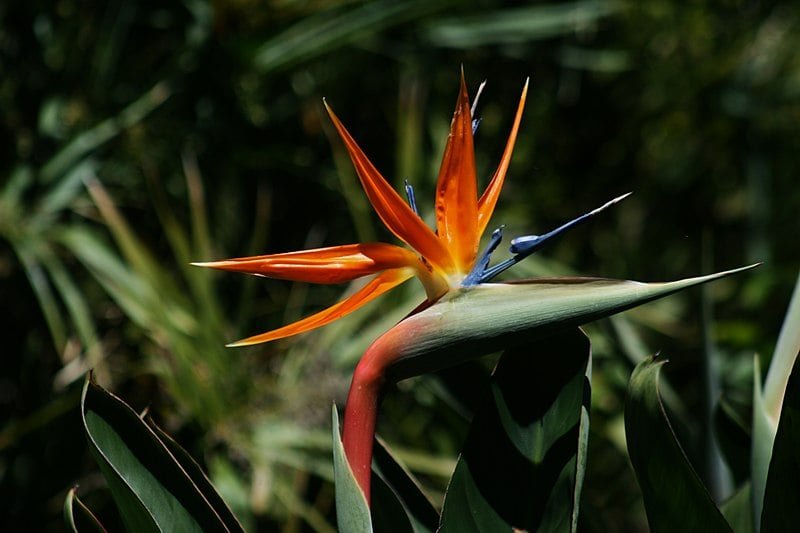The delicate and resilient Lotus flower symbolizes freedom. Blooming gloriously from the murky depths, it transcends adversity to represent liberation and enlightenment. Its graceful petals seemingly dance in the wind, a powerful reminder of the human spirit’s capacity to rise above challenges. What flower symbolizes freedom can vary across cultures, yet the Lotus stands as a universal beacon of resilience and independence. Explore the enchanting world of floral symbolism where each blossom whispers a unique tale of freedom and strength.
Discovering the Flower that Symbolizes Freedom
The Significance of Flowers in Symbolism
Flowers have been used as symbols since ancient times, with each bloom carrying its unique meaning and symbolism. From expressing love and friendship to representing various emotions and occasions, flowers hold a special place in our hearts. One fascinating aspect of flowers is their ability to symbolize abstract concepts such as freedom. In this article, we dive into the world of flowers to uncover the one bloom that best represents freedom.
Understanding the Concept of Freedom
Before we delve into the flower that symbolizes freedom, let’s first understand what freedom truly means. Freedom is the power or right to act, speak, or think without hindrance or restraint. It is the ability to make choices independently and live without oppression or limitations. Freedom is a fundamental human right that is cherished and celebrated across cultures and societies.
Exploring the Symbolism of Flowers
Throughout history, flowers have been used to convey complex emotions, beliefs, and ideas. Different blooms hold different meanings, making them a rich source of symbolism. From representing beauty and purity to expressing sentiments of love and gratitude, flowers have a language of their own. The symbolism of flowers varies across cultures, with each bloom carrying its unique significance.
Unveiling the Flower that Symbolizes Freedom
Among the vast array of flowers, one bloom stands out as a powerful symbol of freedom – the humble daisy. The daisy, with its simple yet elegant appearance, embodies the essence of freedom in a profound way. This unassuming flower holds deep symbolism that resonates with the concept of liberation and independence.
Attributes of the Daisy
The daisy is a delicate flower with a vibrant yellow center surrounded by white petals. Its uncomplicated beauty and unpretentious nature make it a beloved bloom in gardens and floral arrangements. The daisy is known for its resilience and ability to thrive in various environments, symbolizing adaptability and freedom.
The Symbolism of the Daisy
The daisy holds a variety of meanings across different cultures and traditions. In general, the daisy is associated with innocence, purity, and new beginnings. However, when it comes to symbolizing freedom, the daisy takes on a deeper significance. The open petals of the daisy represent the freedom to express oneself openly and honestly. The yellow center symbolizes the light of freedom shining through any darkness or oppression.
Historical and Cultural Significance of the Daisy
The daisy has a rich historical and cultural significance, further solidifying its status as a symbol of freedom. In ancient Roman mythology, the daisy was associated with Freya, the goddess of love, beauty, and fertility. The daisy was believed to embody Freya’s essence of freedom and liberation.
In medieval times, the daisy was revered for its healing properties and was used in various remedies. The daisy’s association with purity and rejuvenation made it a symbol of freedom from illness and suffering. Over the centuries, the daisy has remained a timeless symbol of hope, renewal, and freedom.
Embracing Freedom through Flowers
In a world filled with challenges and constraints, the symbolism of flowers offers a source of inspiration and solace. The daisy, with its representation of freedom and resilience, serves as a reminder to embrace our inherent ability to break free from limitations and live authentically. By incorporating the spirit of the daisy into our lives, we can harness the power of freedom and express ourselves fully.
In the language of flowers, the daisy emerges as a poignant symbol of freedom, embodying the essence of liberation and independence. Through its simple yet profound symbolism, the daisy encourages us to embrace our individuality, express ourselves openly, and pursue our dreams without constraint. As we navigate life’s journey, let the daisy serve as a beacon of freedom, guiding us towards a future filled with possibilities and new beginnings.
10 Most Beautiful Flowers & What They Symbolize
Frequently Asked Questions
Which flowers symbolize freedom?
Some flowers that symbolize freedom include the butterfly bush, which signifies freedom in different cultures, and the daisy, representing innocence and freedom. The iris is also associated with freedom due to its use in Greek mythology.
Are there specific colors of flowers that represent freedom?
While various colors can symbolize freedom in different contexts, blue and white are commonly associated with freedom. Blue represents peace and tranquility, while white signifies purity and freedom.
Do any wildflowers have a symbolic meaning of freedom?
Yes, wildflowers such as the dandelion and sunflower are often seen as symbols of freedom. The dandelion, with its ability to spread seeds freely in the wind, represents liberation and letting go. Sunflowers, known for their resilience and ability to thrive in diverse environments, also symbolize freedom and hope.
Final Thoughts
In conclusion, the forget-me-not flower symbolizes freedom. Its delicate blue petals inspire a sense of liberation and resilience. Embracing the forget-me-not as a symbol of freedom can serve as a reminder to cherish our liberties and fight for justice. Let the forget-me-not bloom serve as a beautiful representation of freedom in all its forms.






